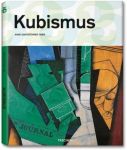China Miéville, Terry Pratchett, Kazuo Ishiguro and the Ambivalence of Knowing
Sezi:China Miéville, Terry Pratchett, K
| Autor: | Murat Sezi |
|---|---|
| Verfügbarkeit: | Auf Lager. |
| Artikelnummer: | 2531577 |
| ISBN / EAN: | 9783868219616 |
Produktbeschreibung
The guiding question of this study is how the theme of knowledge is realized in the genre of fantasy. Drawing from the research fields of literature and knowledge, theory of fantasy, narratology, and memory/orality studies, CHINA MIÉVILLE, TERRY PRATCHETT, KAZUO ISHIGURO AND THE AMBIVALENCE OF KNOWING: AN ANALYTICAL MODEL FOR THE REPRESENTATION OF KNOWLEDGE IN FANTASY LITERATURE furthermore investigates how societal struggles over knowledge are negotiated in contemporary fantasy literature, with specific foci on the depiction of technology and risk in China Miéville's "The Scar", culture and identity in Terry Pratchett's "Nation", and memory and repression in Kazuo Ishiguro's "The Buried Giant".
The study finds that while the worldviews the novels espouse with regard to their attitude to knowledge differ considerably, they all contain the general notion that knowledge can be dangerous, in that the discovery or revelation of hitherto secret knowledge threatens the stability of the society itself or the personhood of individuals. Knowledge conflicts are staged by means of contrasting worldviews, which are realized through the novels' character systems. This particularly pertains to the questions of whether it is better to remember or to forget, and whether the old or the new society is to be preferred.
TABLE OF CONTENTS
1. Introduction9
2. Literature and knowledge13
2.1 Preliminary considerations14
2.2 Ways of conceptualizing the relationship between literature and knowledge15
2.3 Knowledge as a theme of fantasy literature19
3. Fantasy and genre23
3.1 Defining fantasy24
3.2 Fantasy and structuralism26
3.2.1 Fantasy as mode, genre, and formula29
3.2.2 Fantasy, structuralism, and character knowledge30
3.3 Rhetorics of fantasy32
3.3.1 The narrative trajectory of the portal-quest fantasy33
3.4 Conclusion: Theorizing fantasy35
4. Narratology37
4.1 Characte37
4.1.1 Character knowledge39
4.2 Plot43
4.2.1 Story, plot, and fantasy44
4.3 Space45
4.3.1 The division of narrative space48
4.4 Conclusion: Narratology49
5. The literary realization of individual and collective knowledge51
5.1 Memory in literature52
5.1.1 Collective memory: Communicative and cultural memory53
5.1.2 The rhetoric of collective memory55
5.2 Orality in literature57
5.2.1 The constitution and forms of oral knowledge58
5.2.2 The thematic integration of oral knowledge60
5.3 Conclusion: Memory and orality in literature63
6. The analytical schema65
7. China Miéville's "The Scar"69
7.1 Character knowledge in "The Scar"71
7.1.1 Krüach Aum73
7.1.2 Bellis Coldwine75
7.2 The public discourse of knowledge79
7.3 Reality and perception81
7.4 Places of knowledge85
7.4.1 Armada85
7.4.2 Grand Gears Library88
7.4.3 The island of the anophelii91
7.5 Interim conclusion: Knowledge in "The Scar"95
8. Terry Pratchett's "Nation"97
8.1 Character knowledge in "Nation"99
8.1.1 Mau100
8.1.2 Daphne108
8.2 Orality and story-telling in "Nation"117
8.2.1 Pilu122
8.3 Collective memory and identity124
8.4 The reconciliation of science and belief131
8.5 Interim conclusion: Knowledge in "Nation"136
9. Kazuo Ishiguro's "The Buried Giant"137
9.1 Character knowledge in "The Buried Giant"141
9.1.1 Wistan and Gawain142
9.1.2 Axl and Beatrice144
9.2 Orality and story-telling in "The Buried Giant"150
9.3 Places of memory156
9.4 Exhuming in the darkness159
9.4.1 Awakening in the light163
9.5 Interim conclusion: Knowledge in "The Buried Giant"165
10
The study finds that while the worldviews the novels espouse with regard to their attitude to knowledge differ considerably, they all contain the general notion that knowledge can be dangerous, in that the discovery or revelation of hitherto secret knowledge threatens the stability of the society itself or the personhood of individuals. Knowledge conflicts are staged by means of contrasting worldviews, which are realized through the novels' character systems. This particularly pertains to the questions of whether it is better to remember or to forget, and whether the old or the new society is to be preferred.
TABLE OF CONTENTS
1. Introduction9
2. Literature and knowledge13
2.1 Preliminary considerations14
2.2 Ways of conceptualizing the relationship between literature and knowledge15
2.3 Knowledge as a theme of fantasy literature19
3. Fantasy and genre23
3.1 Defining fantasy24
3.2 Fantasy and structuralism26
3.2.1 Fantasy as mode, genre, and formula29
3.2.2 Fantasy, structuralism, and character knowledge30
3.3 Rhetorics of fantasy32
3.3.1 The narrative trajectory of the portal-quest fantasy33
3.4 Conclusion: Theorizing fantasy35
4. Narratology37
4.1 Characte37
4.1.1 Character knowledge39
4.2 Plot43
4.2.1 Story, plot, and fantasy44
4.3 Space45
4.3.1 The division of narrative space48
4.4 Conclusion: Narratology49
5. The literary realization of individual and collective knowledge51
5.1 Memory in literature52
5.1.1 Collective memory: Communicative and cultural memory53
5.1.2 The rhetoric of collective memory55
5.2 Orality in literature57
5.2.1 The constitution and forms of oral knowledge58
5.2.2 The thematic integration of oral knowledge60
5.3 Conclusion: Memory and orality in literature63
6. The analytical schema65
7. China Miéville's "The Scar"69
7.1 Character knowledge in "The Scar"71
7.1.1 Krüach Aum73
7.1.2 Bellis Coldwine75
7.2 The public discourse of knowledge79
7.3 Reality and perception81
7.4 Places of knowledge85
7.4.1 Armada85
7.4.2 Grand Gears Library88
7.4.3 The island of the anophelii91
7.5 Interim conclusion: Knowledge in "The Scar"95
8. Terry Pratchett's "Nation"97
8.1 Character knowledge in "Nation"99
8.1.1 Mau100
8.1.2 Daphne108
8.2 Orality and story-telling in "Nation"117
8.2.1 Pilu122
8.3 Collective memory and identity124
8.4 The reconciliation of science and belief131
8.5 Interim conclusion: Knowledge in "Nation"136
9. Kazuo Ishiguro's "The Buried Giant"137
9.1 Character knowledge in "The Buried Giant"141
9.1.1 Wistan and Gawain142
9.1.2 Axl and Beatrice144
9.2 Orality and story-telling in "The Buried Giant"150
9.3 Places of memory156
9.4 Exhuming in the darkness159
9.4.1 Awakening in the light163
9.5 Interim conclusion: Knowledge in "The Buried Giant"165
10
Zusatzinformation
| Autor | Murat Sezi | Verlag | WVT Wissenschaftlicher Verlag Trier |
|---|---|---|---|
| ISBN / EAN | 9783868219616 | Bindung | Taschenbuch |
Weitere beliebte Produkte
-

Tiger fressen keine Yogis
Piper.05184 Timmerberg.Tiger <span>Als Taschenbuch gegenüber Hardcover 10,00 €</span>
-

-

Betriebsverfassungsrechtliches Beweisverwertungsverbot bei Nichtbeachtung des Mitbestimmungsrechts nach Paragraph 87 Abs. 1 Nr. 1 und Nr. 6 BetrVG
Kaltenmeier:Betriebsverfassungsrechtlic <span>Als Taschenbuch gegenüber Hardcover 39,90 €</span>




















